You are here
Back to topFresh Produce Forum China: Closing Report
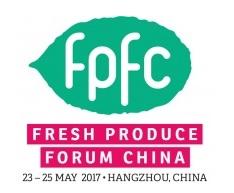
Berlin/Hangzhou, 2 June 2017 – China’s fresh produce supply chain is evolving fast, triggered by the rise of e-commerce, direct sourcing and new investments into production and distribution infrastructure.
That was one of the key takeaways from Fresh Produce Forum China, which took place on 23-25 May in Hangzhou.
Co-organised by Asiafruit Magazine and ASIA FRUIT LOGISTICA, China’s leading international trade conference attracted more than 190 delegates to Hangzhou’s JW Marriot Hotel with a high-quality programme of expert presentations, panel discussions, networking and study tours.
Around 75 per cent of the high-level delegates came from 12 provinces across China, with international participation from fresh produce professionals representing 15 different countries.
Introducing the keynote session ‘E-commerce revolution 2.0’ on 24 May, Asiafruit’s China editor Yuxin Yang said e-commerce had evolved from a consumer-direct platform for fresh produce marketers to become an integral part of the business.
Fresh food is the next frontier for China’s e-commerce giants, Yang noted. Between 2012 and 2016, the value of China’s fresh food e-tail market grew from under RMB4bn (US$580m) to almost RMB91bn (US$13.2bn), recording an 80 per cent growth last year alone, according to analysis from China International Electronic Commerce Center (CIECC). And the market value is projected to ramp up to RMB150bn (US$21.86bn) in 2017.
While Chinese consumers have embraced online purchasing of fresh food, their demands and expectations are on the rise. Following a shakeout among e-commerce companies over the past year, the bigger players are now pouring huge investments into the supply chain to meet consumers’ changing demands. Conference moderator Chris White, managing director of Asiafruit’s publisher Fruitnet Media International, was joined by several e-commerce pioneers for a panel discussion about the future direction of the market.
Alibaba-invested fresh food e-tailer Yiguo has invested heavily in its cold chain logistics business Exfresh on the back of recent rounds of funding, and the company’s director of strategic sourcing Chen Ren was on-hand to explain the drivers.
“First of all it’s about providing high-quality, safe food,” said Chen. “The younger generation wants convenience, and they’re very demanding – quality, freshness and on-time delivery are all very important, so we need to make a huge investment in sourcing and the supply chain to meet those demands."
E-commerce is also leading bricks-and-mortar retailers to raise their game. Contrary to some predictions a few years ago that online channels would decimate their offline counterparts, online and offline retailers have been integrating their operations to better serve the consumer, White noted. This trend has spawned some exciting new retail concepts, such as Alibaba-invested online-to-offline (O2O) fresh food chain Hema Food Market, where consumers can order fresh produce online to be delivered express from their nearest store.
“There’s a growing awareness that neither channel can service the consumer adequately on its own,” explained Ocean Liu, operations expert at Alibaba’s Tmall Fresh. “Online, the consumer might see the goods but not be able to get them in reality. Offline, retailers might not have the efficiency, the data about the consumer, or the capacity to optimise the supply chain."
Online to offline integration is very difficult for conventional retailers to realise, Liu added. “This is why we don’t see great examples of this model in Europe,” he continued. “With Hema Fresh, we started with e-commerce at the core, it was born from an internet mindset. We were able to build stores and tailor their design to match the demands of a particular consumer demographic. The store is the experiential entity – the place to taste and experience. After that, we expect consumers will buy more goods on the online version – that’s the ideal."
E-commerce is also driving change in other parts of the supply chain beyond retail, notably China’s wholesale markets. Floruit has taken Beijing’s conventional wholesale fruit import market at Xinfadi online with its business-to-business (B2B) trade platform, and the company’s CEO Zhang Yi outlined some of the benefits. “We’re connecting the producers and the retailers and providing a third-party logistics service for them. We also provide sales data and brand promotions for producers,” said Zhang. “One of the most important things is the transparency the system brings. International suppliers want to know the prices in the Chinese market in real-time, who is buying their product and via what channels. We can monitor and coordinate all this information and share it with producers."
New models for direct sourcing
Direct sourcing was the focus of the second general session at Fresh Produce Forum China. George Liu, CEO of B2B online fruit company Frutacloud, kicked off the session by outlining his company’s new model as a direct sourcing service provider. While food retailers might undertake direct sourcing themselves to achieve lower prices and more programmed sales, Liu noted that the process is difficult to execute. “Often, the quality varies greatly between batches of products and the terminal retailers aren’t good at solving the problem of defective product,” said Liu. “With our database of suppliers and customers, Frutacloud adds more value and flexibility. We can use the huge wholesale markets to help terminal retailers deal with defective products for instance."
Frutacloud uses its experience in procurement, logistics and marketing to provide integrated supply chains for high-quality fruit to all types of customers, aiming to minimise the number of brokers and steps in the chain. “We have a neutral position, so we can manage quality at key points in the supply chain and tell growers if there’s a problem with their goods,” said Liu. “We coordinate sourcing with growers to negotiate better freight rates or organise charter flights. We also design packaging to better suit consumer demands and implement this with producers."
Catherine Gao, vice-president of major Chinese fruit store chain Xianfeng Fruit, explained how her company was pursuing more direct routes to suppliers in order to lower costs and improve efficiency. “Direct sourcing helps us to make quicker decisions and become more responsive to our customers,” said Gao. “We can offer better quality product at better prices, improving customer satisfaction as well as our margins."
Direct sourcing of imported fruits in China is being facilitated by the increase in the number of products and suppliers from around the world securing access to the market. Wayne Prowse of Fresh Intelligence Consulting said China has seen “explosive growth” in fresh fruit imports over the past decade, with volumes increasing more than 300 per cent since China joined the WTO in 2002 to top 3.5m tonnes in 2016. While bananas and tropical fruits from nearby South East Asian countries make up the majority of volumes, there has been strong growth in recent years from Southern Hemisphere suppliers, as well as from Ecuador and Europe, he noted.
In addition to established products, Prowse singled out smaller categories such as avocados and western pears as ones that could grow significantly if marketed well, and would benefit from direct sourcing relations between retailer and supplier.
Emerging products, suppliers
Avocados and western pears came under the spotlight during the afternoon in a pair of breakout sessions. Fabien Dumont of Dutch fruit cooperative Fruitmasters and Andy Zhang of Dole China discussed their respective approaches to developing the market in China for European pears, which are very different to their Asian counterparts. Jim Donovan of leading global avocado grower-marketer Mission Produce was joined by Jade Shan of Mr Avocado to explain their campaign to roll out pre-ripened avocados in China, and thereby ramp up consumption.
In one of the parallel breakout sessions, Richard Zhang of Jinfeng Cooperative gave an insight to the challenges of modernising China’s farming industry, and explained how Jinfeng was using its parent company Kingenta’s huge fertiliser business to reach out to small farmers and help them to upgrade their inputs, planting technology, growing techniques and distribution and marketing. The other breakout session explored Spain’s position and potential as an exporter to China, with first-hand insights from Nicolas Arbarello of pioneering Spanish citrus grower-marketer Juan Motilla and Jun Pan of Cash Fruta Sevilla.
The quest for scale
In the final general session ‘Scaling up: Chinese businesses rise to the challenge’, a panel featuring leading fresh produce distributors as well as financial and legal experts discussed the best ways to fund expansion for China’s fresh produce companies, and looked at how to invest in all aspects of the supply chain, from production to retail.
While China has been working on rural land reform for several years, few regions allow the ownership of land to change hands, which restricts consolidated landholdings. “You can’t really have large-scale production in the countryside,” Jia Jinlin, operations director of Nongtai Finance. “Also, while farmers mostly have land use rights, they cannot borrow from financial institutions as they’re too small and banks won’t do micro-finance."
Nevertheless, Matthew Murphy of boutique law firm and consulting group MMLC Group, said major institutions now had a great deal more confidence in China’s land use rights and legal system, which would only boost investment in the sector.
Major fruit distributors such as Joy Wing Mau and Yumsun are seeking to increase their investment in Chinese production to meet the growing internal demand for premium products. “There’s definitely great potential to develop high-quality production here,” said Raymond Jin, deputy vice-president of Joy Wing Mau. “But we need to find the right land, management teams and technology."
Bringing in new varieties to China is key to this process of upgrading domestic production, and while IP protection remains risky and challenging in China, Murphy said the situation had improved greatly. “The process of gaining plant variety rights (PVR) certification is now much smoother, and enforcement works well. If someone infringes your PVR you can act on it quickly,” he said. “Of course, your PVR is just one tool and there are a lot of other things you need to do protect your investment, from providing security around growing the product to developing monitoring systems."
Moving beyond production, distributors are also investing in facilities and infrastructure to offer value-adding services for retailers in China. “We used to distribute to individual retail stores, but now we deliver to the distribution centres,” said Jin. “We’re doing a lot more service provision for retailers so we need to upgrade our facilities and equipment to meet their changing demands."
Joy Wing Mau is gearing up for an IPO in the next few years to raise capital for expansion. Jin said the funds would be key to upgrading its infrastructure in China, financing investments in orchards and packhouses overseas and bringing in new varieties. “Ten years ago, an IPO would have given you enough money to buy land to build distribution centres, but the land values in China have increased at a much faster rate than our profits have in this business."
Study tours
On the final day of Fresh Produce Forum China (25 May), delegates were able to choose from a programme of organised tours. In the morning, one group of delegates received a guided tour of the headquarters of e-commerce giant Alibaba. Another group visited Jiaxing Fruit Market, one of China’s largest domestic fruit wholesale markets located around 100km west of Shanghai. Jiaxing is aiming to be become the key hub for imported fruits in eastern China with the construction of a brand new market for imported fruits next year.
Later in the day, a retail tour took in visits to a range of newer food retail formats. Stops on the tour included leading fruit store chain Xianfeng Fruit, membership-only warehouse club Sam’s Club and a Tesco Express new concept small-format store.
Fresh power: CHINA FRUIT LOGISTICA
Fresh Produce Forum China also saw the unveiling of an exciting new addition to the FRUIT LOGISTICA brand family. During the conference opening, Will Wollbold, commercial director of Global Produce Events, announced the launch of CHINA FRUIT LOGISTICA from May 2018.
The new dedicated trade fair for China’s fresh fruit and vegetable business will take place on 14-16 May 2018 at Shanghai Convention & Exhibition Center of International Sourcing in the commercial capital’s Putuo District.
“The Chinese fruit business needs a truly national and trusted platform for the trade in fresh fruit and vegetables, with effective international connections to the wide world of fresh produce,” said Wollbold. “We have developed a global platform in FRUIT LOGISTICA, and a continental platform in ASIA FRUIT LOGISTICA. Now, CHINA FRUIT LOGISTICA brings the Chinese trade the quality and scope of a truly trusted brand event with an international reputation built on proven success."
As the premier conference and networking event for China’s fresh produce business, Fresh Produce Forum China will form an essential part of CHINA FRUIT LOGISTICA, providing delegates with first-rate insights and fresh know-how on market trends and opportunities.
To download the speaker presentations from Fresh Produce Forum China, go to:
www.fpf-china.com/conference-info/Hangzhouprogramme/Speakers
For more information on Fresh Produce Forum China, go to:
www.fpf-china.com
For more information on CHINA FRUIT LOGISTICA, go to:





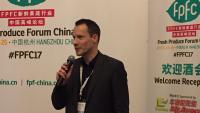
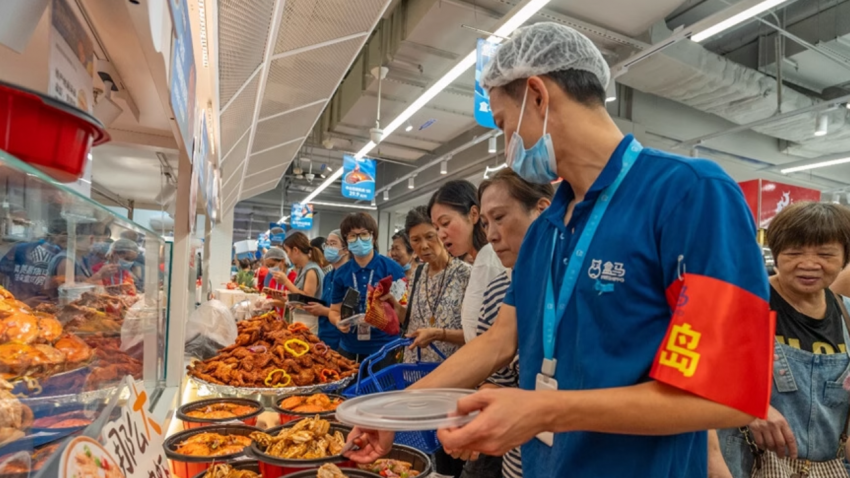
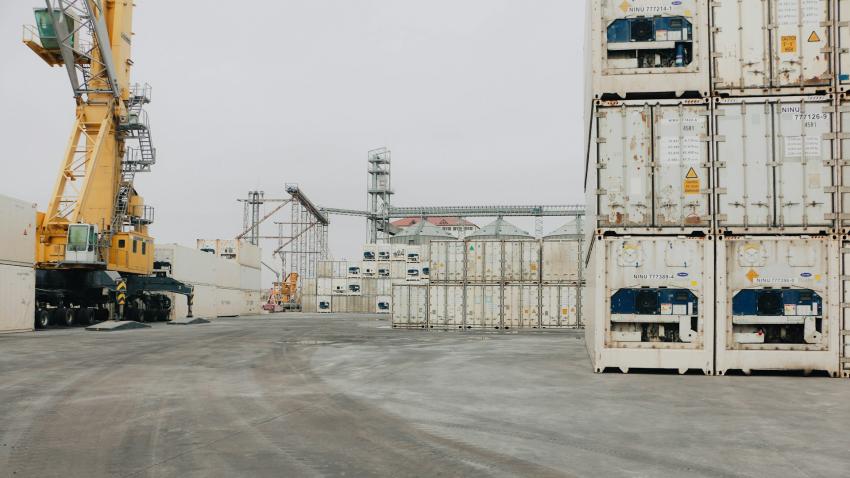
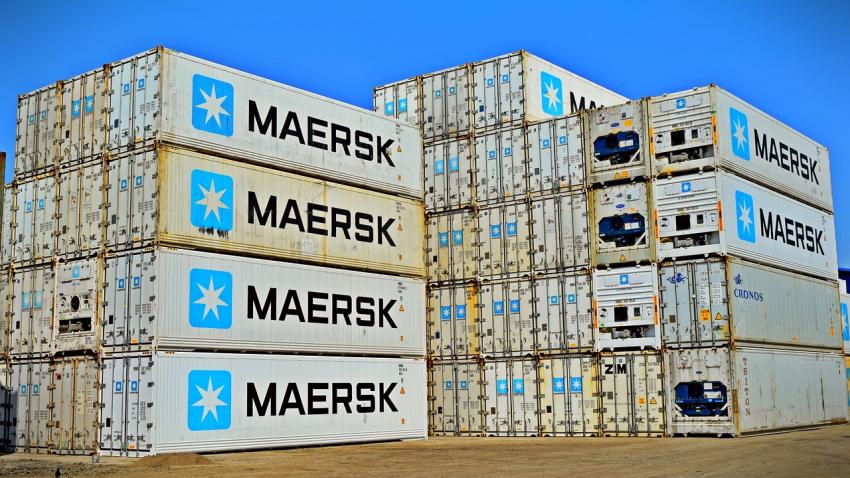








Add new comment